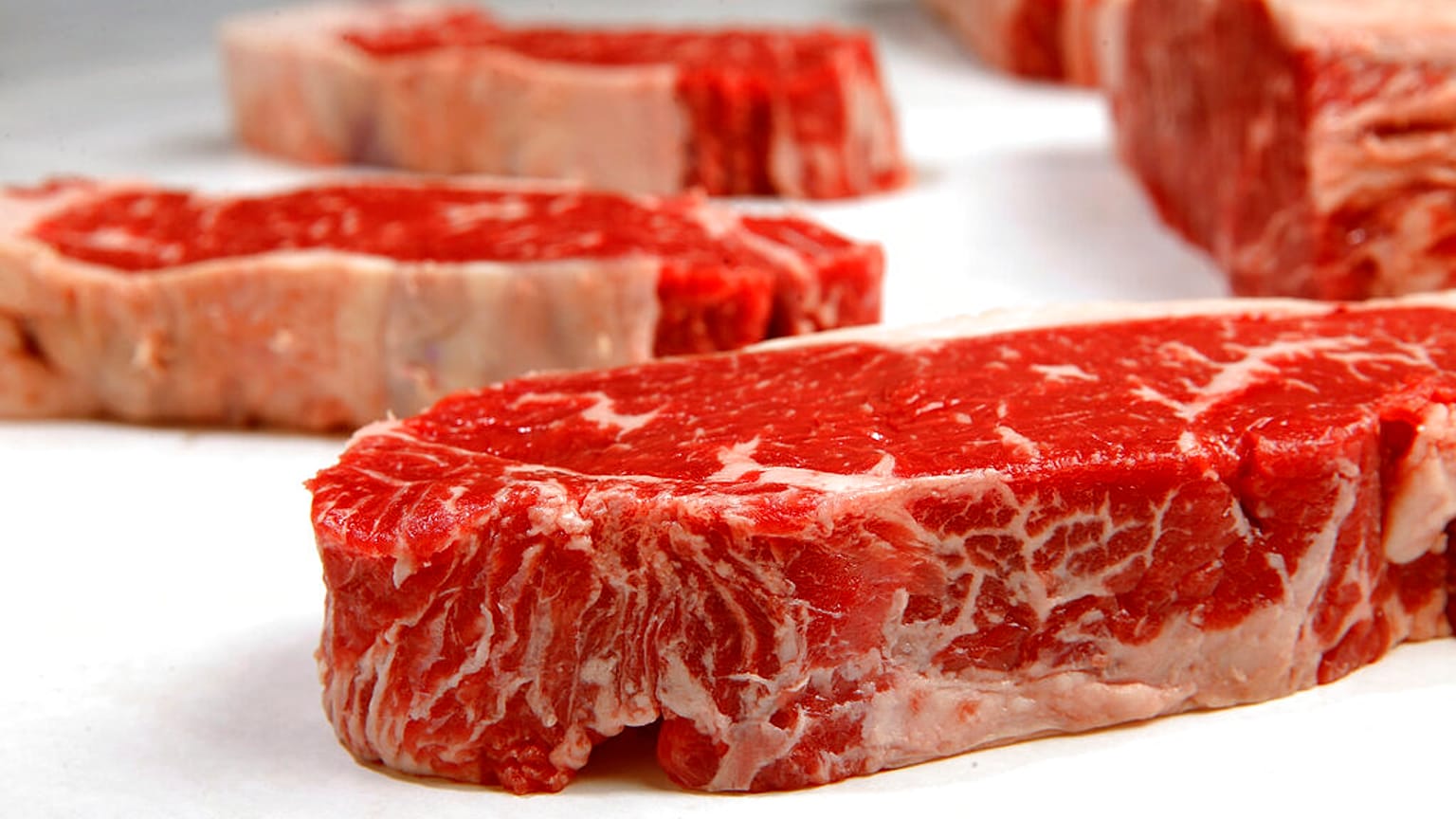Applying taxes to beef products could be one way to reduce CO2 emissions, says the Danish Government
At the Flammen restaurant in Copenhagen, Denmark, chefs cook steaks from cattle raised on the other side of the planet.
 ADVERTISEMENT
ADVERTISEMENT
 ADVERTISEMENT
ADVERTISEMENT
It is something the chef of the Flammen restaurant in Copenhagen seems to be proud of.
“Then there is our beef cuvette," he explained. "It comes from Uruguay or Argentina respectively.”
This is not a trivial matter when it comes to the health of the planet; beef accounts for 55 per cent of Denmark's food-related emissions and it's not just because it is carried thousands of kilometres away from home.
Henrik Wenzel is a professor at the Southern University of Denmark.
“And that is because cows are such bad 'machines'," he said.
"After all, they use between 80 and 90 per cent of the energy they eat as body heat. And in addition, they have four stomachs, they burp and emit methane.”
Changing the menu and eating poultry or fish can ease the problem. This is the approach Flammen has taken.
Thomas Krohn, district manager at Flammen said: “After all, beef is one of the great sinners, which is why we also decided a few years ago to take our beef tenderloin (which is actually our best-selling product) and introduce some turkey, chicken and salmon instead.”
Danish beef consumption emits eight million tonnes of CO2 per year, equivalent to 40 per cent of the country's emissions reduction target. The government has not ruled out tackling the problem through taxation.
Jeppe Bruus, Danish Minister for Taxation, said: “We are looking at all possibilities. And that means, partly, we are in the process of restructuring our food industry, we are in the process of looking at how we can create a tax on the production of, among other things, beef. And then, of course, we are also looking at possible consumption taxes and whether they are to be used”.
According to the Food and Agriculture Organisation, livestock accounts for 15 per cent of global greenhouse gas emissions, a share almost as large as that of global transportation.














